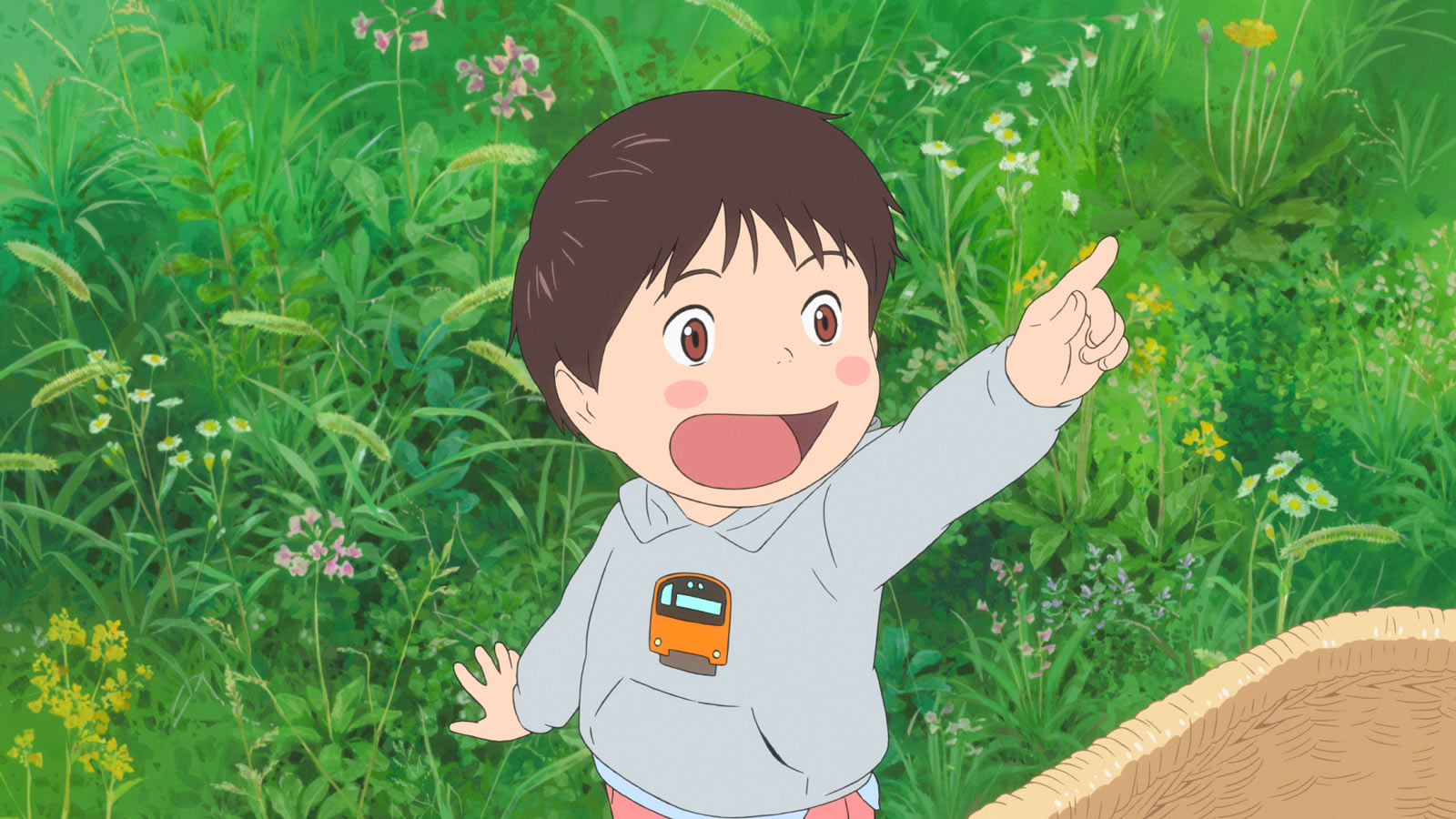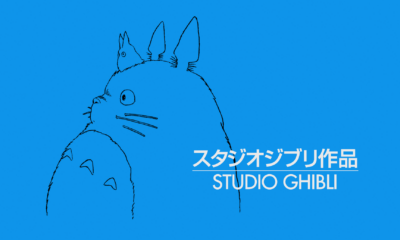Mirai review: Anyone who has ever explored animated offerings from Japanese cinema, be it Studio Ghibli or beyond, will know that they tend to offer a deeper exploration of themes and a more abstract means of craft than some of their more mainstream counterparts in American animation. Mirai is no different, telling a story many can relate to, all the while developing into something much more profound than one initially anticipated.

Mirai review
Mirai follows 4-year-old Kun (Moka Kamishiraish) who has just become a big brother to little baby Mirai. He’s not too happy about it, particularly when all his Mum and Dad’s attention seems focused on Mirai rather than himself. Through the intervention of a magical tree in his garden at home, Kun embarks on a series of adventures that help him face his reality and gain a deeper understanding of his family.
There’s bound to be many of us out there who have younger siblings and know all too well what it was like when you were younger to suddenly have a new kid on the block requiring much more attention than you. Some may have automatically taken the responsibility of the older sibling on straight away, but there are also some of us out there who probably would’ve reacted more like Kun, prone to jealous strops and tantrums over the lack of attention.
The family life painted here is one that is chaotic, messy but strung together by love and care. Kun’s mother and father constantly doubt themselves and question their abilities as a parent, and it makes for some moments of quite an effective reflection on parenting with the film enforcing that you don’t have to be a perfect parent, what matters is that you try.
Kun himself can vary from being very cute to very annoying (as I guess reflects the behaviours of many toddlers). But through the many fantastical journey’s that Kun embarks upon, he takes on many lessons and overcomes problems that we all may have faced when we were little and had a less than rational train of thought, be it anxieties about becoming a new sibling, trying to ride a bike, or feeling like running away from home.
These adventures are guilty of feeling a little episodic, as the film goes through the motions of setting up the issue that needs to be resolved through fantastical intervention. But as the film progresses, these moments of intervention deepen in their meaning and in their level of storytelling craft. They combine elements of Japanese traditions with more generally relatable concerns, and they particularly come to life once the film takes Kun back in to moments of his family’s history, be it zooming off into the past or the future. They allow him to learn more about the important people in his life, and to realise that the fact that his problems aren’t quite so unique to him.
The animation throughout remains solid, if not occasionally a little stiff, but it is enrapturing in all the right ways, producing landscapes and aerial shots that bring to life both the rural and urban landscapes on offer here. What initially begins as a film which seems cute with a slight fantastical bend to it soon develops into something much more profound than that as it details more of this family’s history. Come the future set final act, it also becomes much more surreal in its imagery, becoming all the more fascinating for it.
Mirai offers a fantastical, child’s eye view on a young family that many can relate to, weaving together a film that is rich in cultural and familial history, demonstrating the importance of learning from past generations in order to take on those lessons into the future. A sweet, cute and surprisingly profound experience.
Mirai review by Andrew Gaudion, October 2018.
Mirai was reviewed at the 2018 BFI London Film Festival. Mirai opens at cinemas in UK & Ireland from 2nd November 2018

Latest Posts
-


Interviews
/ 2 hours agoInterview: Scoot McNairy talks new films ‘Blood For Dust’, ‘Speak No Evil’ & ‘Nightbitch’
In the film, McNairy plays Cliff, a former salesman with a chequered past.
By Kat Hughes -


Film Trailers
/ 14 hours agoAnother new trailer for upcoming horror movie ‘Longlegs’
Coming to cinemas this summer.
By Paul Heath -


Film News
/ 16 hours ago‘Speak No Evil’ star promises that the remake will be different
Last week the first trailer for the English language remake of Speak No Evil...
By Kat Hughes -


Film Festivals
/ 16 hours agoStudio Ghibli to receive Honorary Palme d’or at the 77th Festival de Cannes
This year's festival takes place from May 14 to May 25, 2024.
By Paul Heath













